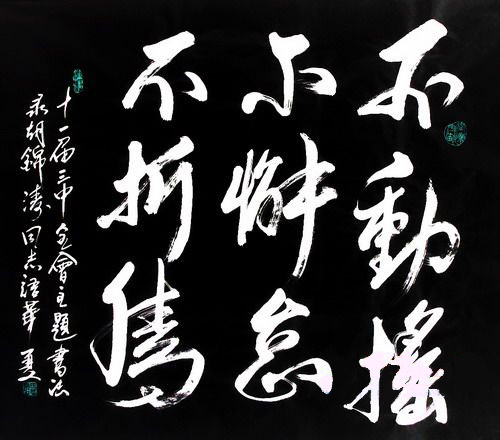Popular Catchphrases in China
A look now at some of the popular catchphrases used across China, some of these words have, perhaps, originated online or from other dialects. Let’s see what you can learn about from these popular catchphrases in China.
1. 雷 léi
It has been one of the most popular Internet words since 2008. With the original meaning of thunder, the word 雷(Léi )has been given another meaning on the web in China. Now it means that one is shocked by some bold actions, or by strange or even embarrassing things.
It is said that this word is originated from a Wenzhou dialect word 雷倒 (léi dǎo) that means along the lines of fainting or falling off chair because of being speechless or overwhelmed by absurd issues or things happening.
For example, Jimmy cuts almost every class, one day he decided to show up in the lecture hall and the professor said to him, “Long time no see, look how you have grown!”
So that sentence made Jimmy lei dao. He must have felt very lei. And in this case, the professor is also considered very lei because he managed to stun Jimmy.
2. 囧jiǒng
As you can see, the character 囧(jiǒng)looks like a face with down casted eyes. The youngsters use it to express feelings of embarrassment or response to silliness. The character 囧 originally means ‘bright or smart’, but it is rarely used in that context nowadays.
For example, at the football game, Mike scored the goal into the wrong gate, one can say Mike just got himself into a very jiong situation and he felt very jiong.
3. 山寨 shān zhài
A picture of a mobile phone emulating the design of a cigarette pack.
In ancient China, this word means a mountain villa built by robbers. Now it mostly used to describe those fake or pirated products.
For example:
What the bloody hell is this? It looks like an iPod but with a brand name iPot! It’s just so 山寨!
4. 宅 zhái
宅(zhai) is Otaku. It has a meaning of “old or obsolete house” and it refers to someone who has a devotion to a subject or hobby (not necessarily anime) to the point of not leaving home. Hence most activities which Otakus in China do will be at home or indoors.
In China’s context, an otaku fan of a particular movie star could quite possibly know all of the films he or she has been in, their birth date, time of birth, shoe size, favorite toothpaste, etc. He or she could also be engaging activities such as online-gaming, surfing the internet to the extent of spending more than 12 hours in front of the computer. He or she could possibly like to collect items obsessively; things like stickers, cards, figurines and usually large amount of money would be spent on all these collectable items.
5. 赖校族 lài xiào zú
The illustration above is a comic trip.
Guy in yellow shirt: Why is the guy on the upper deck always sleeping? Doesn’t he have classes to attend?
Guy in red shirt: (sarcastically) According to my calculations, he should be in his 7th year in university now.
赖校族(lài xiào zú) are a bunch of “campus dwellers”. It refers to those students who have already graduated from college or university but choose to stay and remain on the campus. They are scared by the bleak job market and want to keep living on campus at a lower cost.
6. 房奴 fáng nú
房奴(fáng nú) mean house slaves, which refers to a group of people who spend a large part of their family income paying their mortgage.
These “house slaves” are trapped into a life where everything is dependent upon paying off their mortgage. They live in fear of losing their job or falling ill, and they do not dare to change jobs in case that leads to a loss of security. Entertainment, travel and generally enjoying life all take a back seat to paying the mortgage.
7. 裸婚 luǒ hūn
裸婚(luǒ hūn) literally means ‘naked marriage’. But don’t be mistaken thinking that a couple is getting married without clothes on.
In recent years, as the properties and living expenses in China has gone up since 2008, more and more couples are opting for ‘naked marriage’ because they’re not able to afford a house, a car, a diamond wedding ring or even a proper wedding ceremony. Just taking a picture and getting a marriage certificate is all that is involved.
However, the attitudes of the two genders are quite different. According to initial online statistics 80 percent of men approve of the “naked wedding”, while 70 percent of females do not.
Popular China new forum Sohu.com recently initiated a poll “Will you choose a ‘naked wedding’ in the new era of marriage?” It turned out that 43% votes “Yes” while the remaining 57% voted “No”.
Supporters feel that a “naked wedding” should be the normal expectation. A ‘typical wedding consist of everything’ seems to be what the current society is shaped up to be, showing off your ring, car, photo album to everyone. A few decades ago, our parents also married ‘naked’ and they have better & happier lives now. But look at the divorce rate now! So young people now should also go for ‘naked marriage’.
Those who didn’t support ‘naked marriage’ have their own set of argument that a “naked wedding” is a way of deceiving yourself; living without a certain material basis also means no interest in romance. A marriage on the basis of the certificate of marriage, which is a thin piece of paper, will not be able to withstand any hardships.
Vocabulary:
léi
雷 thunder n/v.
shān zhài
山 寨 fake or pirated products n.
luǒ hūn
裸 婚 naked marriage n.
fáng nú
房 奴 house slaves n.
zhái
宅 old or obsolete house n.












